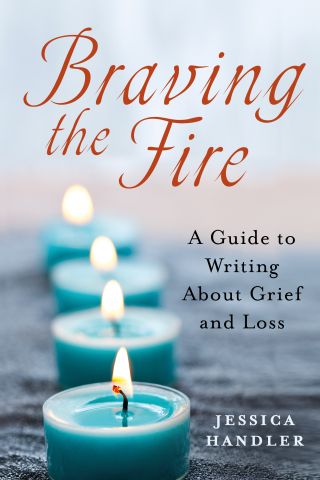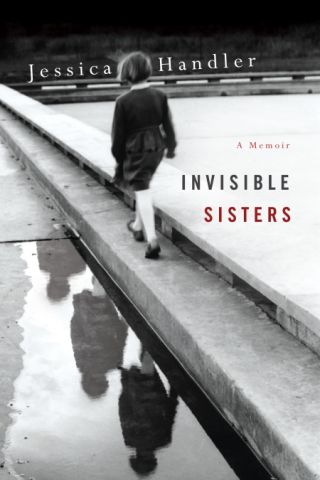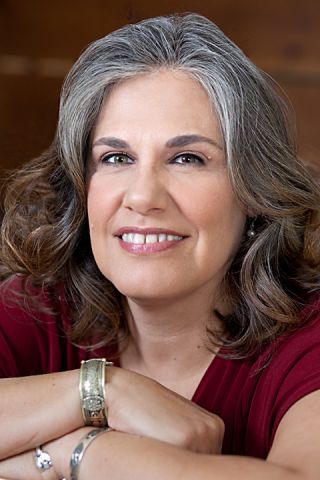Grief
There Are No Rules for When or How Someone Dies
Every January brings the worst day of my year. My little sister’s birthday.
Posted January 6, 2014

[Geek Pride welcomes guest blogger Jessica Handler, author of the memoir Invisible Sisters and Braving the Fire: A Guide to Writing About Grief]
The night of the launch party for my new book Braving the Fire: A Guide to Writing About Grief was cold and wet. It was two weeks before Christmas – not the best time to get people out of their warm houses to come to a book talk in a ramshackle hippie church on an out of the way street in an out of the way neighborhood, or the best time to invite people to spend money on a book about grief and loss.
As my husband and I faced the wet steps to the church, I turned around and looked at the city park across the quiet street. The fog was thick as gauze: the park benches were wet black shapes, and the light over the church door wavered like a candle flame. Somewhere in the night, a tinny recording of the Shaker hymn ‘Tis a Gift to Be Simple’ played, the melody just a little muted, maybe from the dampness. I couldn’t have picked a better soundtrack for the view if I’d tried.
The winter holidays and the New Year are for me, and so many people, about turning over a new leaf: wiping clean the mistakes and bad memories of the preceding year and promising to do more things right this time around. January means a clean slate. A simple thing, but every January brings the worst day of my year. My little sister’s birthday is in January. This month marks what would have been her forty-ninth birthday. She died twenty-two years ago, and while I have to check to remember the day of her death – it’s August 13 – I never forget her birthday.
The term “out of order death” can be applied to the loss of a younger sibling or a child. Older people die before younger people; that’s how these things are ‘supposed’ to go. But there are no rules for when or how someone dies, just as there are no rules for how to acknowledge the milestones in life that they miss and their survivors can’t help but see, year after year. What I remember every January is the “welcome home” sign in shiny cardboard letters that my grandparents and I strung over the living room doorway to greet my parents and baby sister, not quite six years younger than me. I remember the yellow blanket that our mother unwrapped to show me my new sister; the first and last baby I have ever loved.

Sibling grief is the red-headed stepchild of the grief support resources family, which leaves people like me – the sister of not one, but two deceased sisters, as what The Compassionate Friends, a national grief support organization with more than six hundred chapters, calls a “forgotten mourner.”
We know how to ask how someone’s faring when they experience the death of a grandparent or a parent, even when that death is traumatic or unexpected. On some level, we expect these deaths, even though they can be terrible. But few people know how to listen to a child, a teenager, or a young adult when someone close has died. It’s too unnerving. The death of a sister or brother extinguishes not only their future, but part of the survivor’s future, too.
My own future turns into my present every day. I go to work, I cook a meal, I love my husband and my friends. I write a book, I add too much curry to the soup. My sister’s future, marked by her birthday, comes and goes just as it would were she alive to enjoy it. We might have joked about whether or not to color the encroaching gray in our hair. Instead, I debate this with myself and sometimes with my good friends. Sarah was twenty-seven when she died. Gray hair would never be part of her life.
Every January there’s always one day of thick fog. I watch for light glittering in the mist, listen for some kind of music, and simply, as the day revolves away until the next year, take my husband’s hand and stand solidly, and not unhappily, living my future.
___________________

Jessica Handler is the author of Braving the Fire: A Guide to Writing About Grief (St. Martins Press, December 2013.) Her first book, Invisible Sisters: A Memoir (Public Affairs, 2009) is one of the “Twenty Five Books All Georgians Should Read.” Her nonfiction has appeared on NPR, in Tin House, Drunken Boat, Brevity, Newsweek, The Washington Post, and More Magazine. Honors include residencies at the Josef and Anni Albers Foundation, a 2010 Emerging Writer Fellowship from The Writers Center, the 2009 Peter Taylor Nonfiction Fellowship, and special mention for a 2008 Pushcart Prize. More info at www.jessicahandler.com.


